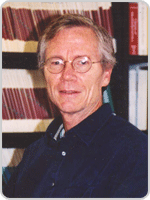Background Checking at LHC
- Details
- Category: Research News
- Published: Tuesday, July 13 2010 09:19
The Large Hadron Collider (LHC) at CERN has begun 18 to 24 months of running at a 7-TeV center-of-mass energy—more than three times that achieved at the Fermilab collider. Before they can start to look for signals of new physics, however, the four LHC experiments, ATLAS, CMS, ALICE, and LHCb, must understand the huge spectrum of background events.Read More
